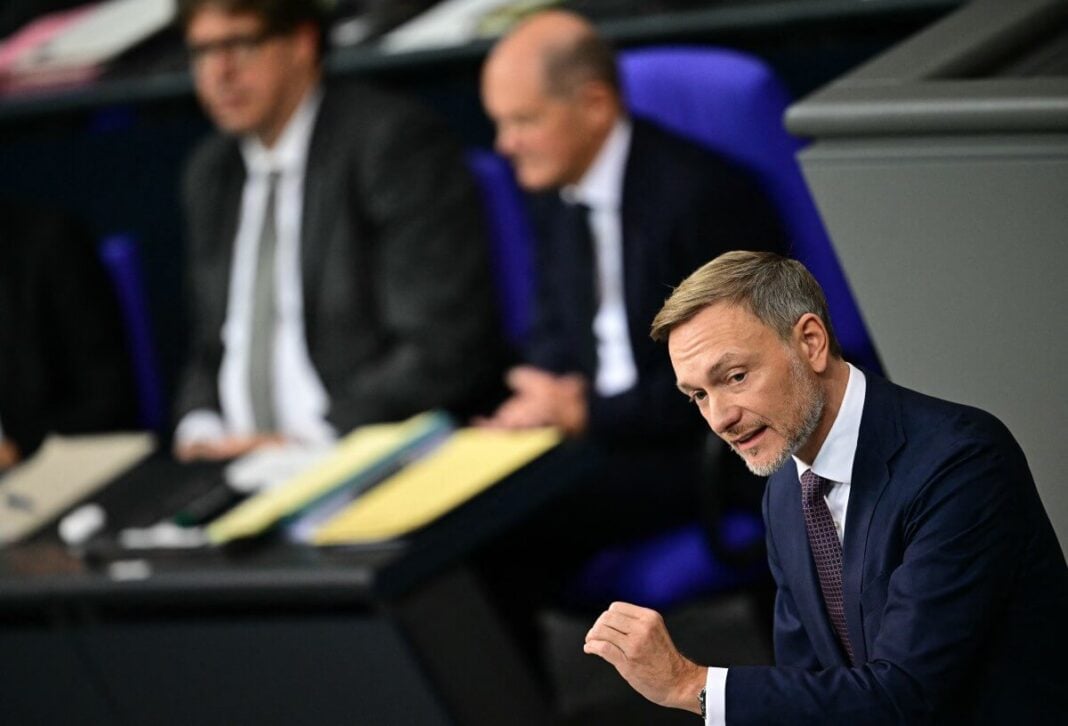Yasemin Aydın*
Germany’s reputation as a model of political stability and consensus is facing a profound test. The recent reports that the Free Democratic Party (FDP) — Germany’s classic liberal party — had considered abandoning the “traffic light” coalition, comprising the Social Democrats (SPD), the Greens, and the FDP before the collapse of the government, have triggered alarm bells not only in Berlin but across Europe. It suggests that a political party that is part of the government was trying to sabotage the coalition to avoid responsibility in Germany. These revelations, though denied by FDP leaders, underscore the deep ideological rifts within a coalition once hailed as a promising blueprint for progressive governance in Europe’s largest economy.
A fragile coalition on shaky ground
The coalition, formed in 2021, was an ambitious attempt to balance competing political priorities: the SPD’s commitment to social justice and public spending, the Greens’ focus on bold climate action and the FDP’s adherence to fiscal conservatism and economic liberalism. While this ideological diversity was initially framed as a strength, it has become a source of discord. Disputes over climate policies, fiscal rules, and social reforms have repeatedly exposed the limits of cooperation, with each party struggling to reconcile its vision with the coalition’s broader agenda.
The FDP’s reported deliberations to force a situation that would provoke the collapse of the coalition government, first revealed by leading German media outlets like Die Zeit and the Süddeutsche Zeitung, have amplified these tensions. Although FDP leader Christian Lindner, who was sacked as finance minister by Scholz earlier this month in a development that triggered the government’s collapse, dismissed the allegations as speculative, the political fallout has been significant. SPD leader Lars Klingbeil reacted with indignation, accusing the FDP of undermining trust, while the Greens called for renewed focus on unity and governance. This public airing of grievances had already further eroded the confidence in the coalition’s stability, raising questions about its capacity to govern effectively.
Why this crisis matters
For Germany, this is not just a political drama — it is a moment of reckoning. The stakes are high, both domestically and internationally. Domestically, the collapse of the coalition triggered early elections, plunging the country into political uncertainty. This instability may benefit the far-right Alternative für Deutschland (AfD), which has already made significant electoral gains by capitalizing on public dissatisfaction with mainstream parties. A weakened center amplifies the risks of polarization, further straining Germany’s democratic institutions.
On the international stage, Germany’s internal fragility has far-reaching implications. As the European Union’s economic and political powerhouse, Germany plays a critical role in shaping the bloc’s policies on climate change, energy security and geopolitical crises, such as the war in Ukraine. The coalition’s inability to project unity has already raised concerns about Germany’s leadership capacity, particularly at a time when Europe is grappling with the fallout from Russia’s aggression, economic uncertainty and the broader challenges of transitioning to a green economy.
The tension between Germany’s postwar tradition of consensus-driven politics and the increasingly fractured political landscape reflects broader global trends. Like many democracies, Germany is grappling with the pressures of populism, economic disparity and the erosion of trust in political institutions. The rise of the AfD, once a fringe movement, is emblematic of these shifts, as it exploits fears over migration, economic insecurity and climate policies to stoke division.
A path forward: pragmatism and resilience
Despite the challenges, this crisis also offers an opportunity for Germany’s leaders to reaffirm the values that have long defined its democracy: compromise, dialogue and resilience.
This will require bold and pragmatic leadership. The state must address pressing issues such as rising inflation, energy security, and public discontent with tangible policy measures that resonate with voters. Moreover, it must do so while maintaining a united front, as public squabbling only fuels cynicism and strengthens extremist narratives.
At the same time, Germany’s political elite must confront the structural issues that have fueled discontent, including growing economic inequality and a perception of detachment from ordinary citizens’ concerns. Bridging the gap between the policy elites and the public is critical to rebuilding trust and countering the populist surge.
Germany at a crossroads
For international observers, Germany’s coalition crisis serves as a case study in the fragility of modern democracies. Even a nation celebrated for its stability is not immune to the pressures of polarization and political fragmentation. Yet Germany’s history offers hope. Its postwar recovery and unification after the Cold War are testaments to its capacity for reinvention and resilience.
The question now is whether Germany’s leaders can rise to the occasion. The choices they make in the coming months before the early election in February will shape not only the future of the political parties but also the trajectory of German democracy. In a world marked by uncertainty and division, Germany has an opportunity to reaffirm its role as a beacon of democratic stability and a champion of collaborative governance. But this will require a recommitment to the values that have long been its foundation.
If Germany can navigate this crisis with clarity and purpose, it will emerge stronger — ready to lead at home and have influence on the global stage.
*Yasemin Aydın is a social anthropologist and social psychologist in Germany.
